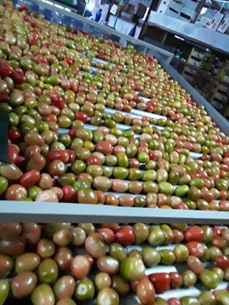 The tomatoes grown around Lutzville on South Africa's Atlantic coast have traditionally been for processing, but over the past three years many growers have dropped out because of the economics of constant spraying against Tuta absoluta, the leafminer moth which has changed everything since entering the country in 2016.
The tomatoes grown around Lutzville on South Africa's Atlantic coast have traditionally been for processing, but over the past three years many growers have dropped out because of the economics of constant spraying against Tuta absoluta, the leafminer moth which has changed everything since entering the country in 2016.
Citrus has taken the place at some former tomato farms around here, but Jacques Mollentze from Up To Date believes that sooner or later, a Tuta absoluta control will be discovered.
Strength in summer tomatoes
They, too, battle with Tuta absoluta ("The guy who doesn't have Tuta, isn't a tomato grower," he remarks).
"The leafminer moth is a tremendous problem, and it's not costing us thousands: it's costing us millions. And then there's no guarantee you won't still be taking off half your expected crop. Without spikes in the tomato price, it's impossible to make it. We were lucky this year: we obtained very good prices in summer, and it's purely as a result of Tuta decreasing the country's tomato supply."
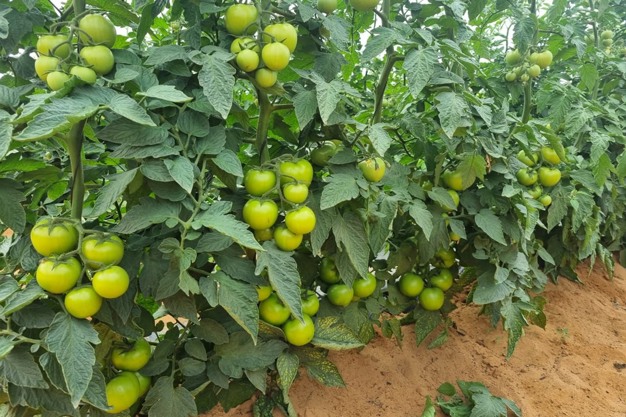
The costs of establishing tomatoes (R250,000 or 12,700 euros per hectare for open field production and roughly double that for undercover production) are considerable, but it is offset by their auspicious maritime climate.
Their major advantage to growing tomatoes on farms between 20 and 80km from the coast, he explains, is the cooling sea breeze at night, keeping their tomatoes in the sweet spot between 24°C and 28°C, and enabling a tomato harvest from late November all the way to August. "The Lutzville-Koekenaap area is a very good summer production area, that's our strong suit because we can send a lot of tomatoes during that period to Gauteng and Natal."
He notes their strength in the Saladette market from November until the end of May and a line that has become a main variety in their portfolio are Saladita cherry tomatoes, which sell well in the 'I Love Saladita' punnets.
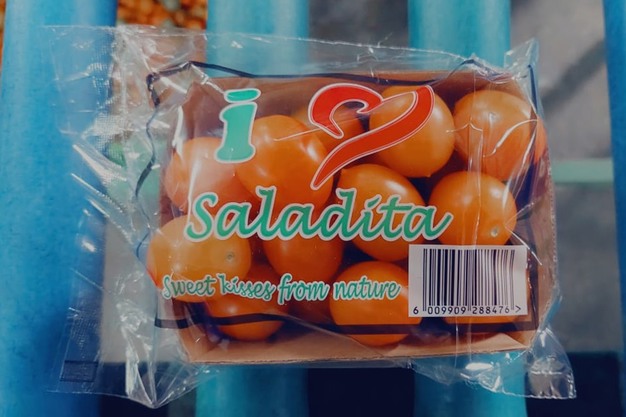
Besides Saladettes and Saladitas, they grow canning tomatoes and the usual round tomato. Up To Date supplies the fresh produce markets of Johannesburg, Pretoria and Durban, and to all but one of South Africa's supermarkets.
It is the first year of no onions planted on their farms. Butternuts (local sales only), pumpkins, and some raisins and wine grapes on their farms in Klawer and Trawal complement tomatoes, which remain their top priority.
"Our tomato brands are very strong and are broken down into our top brand I Love Tomatoes, and targeted quality products in the Day&Night and Lekka-Lekka brands. We are very secure in our handling and classing with special focus on colour and size, ensuring a consistent grading throughout the season."
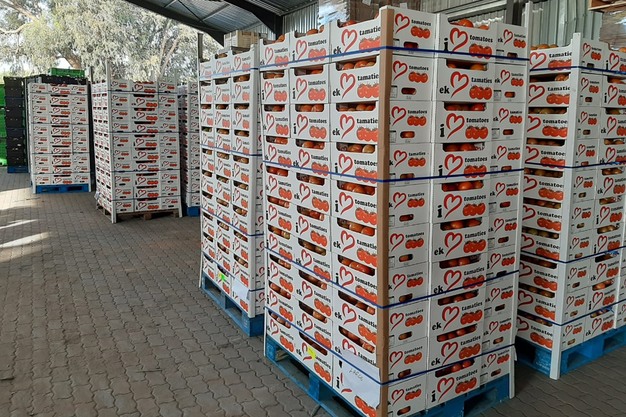
Border closures should go both ways
Up To Date tomatoes are also sold in Namibian stores, that is, until Windhoek closes its borders to certain South African crops, as it does fairly regularly. Right now is one of those periods, and Mollentze considers it not fair that their exports are stopped, while Namibian tomato growers continue sending their tomatoes to the Western Cape.
"I have no problem with Namibian farmers marketing in South Africa. It's a free market system, and they're welcome here. But when our neighbours close their border, we ought to also close ours. And when theirs remains open, ours remains open. We're all part of the Southern African Development Community (SADC) and we ought to be applying the principles of free trade within the bloc. The playing field should be level for both sides."
It bothers him, he says, that their trade is stifled while a fair amount of Namibian tomatoes, competitive in price, continue to be sent to the Cape Town market.
Botswana also closes its borders in an effort to stimulate and protect its domestic commercial vegetable production, but this has less of an effect in the Western Cape, he remarks, than on tomato growers in the north, close to the Botswana border.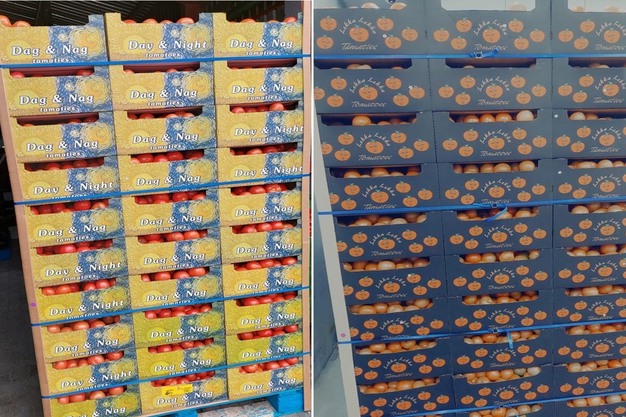
Up To Date's Day&Night and Lekka-Lekka tomato brands
For more information:
Jacques Mollentze
Up To Date
Tel: +27 82 880 7170
Email: [email protected]
